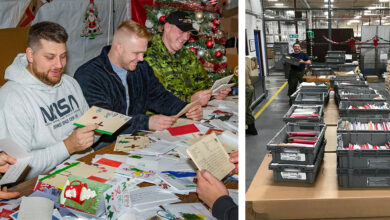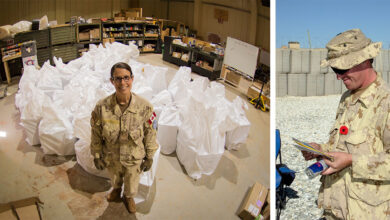Your spouse has deployed and is finally home or maybe your partner has been home for a while. You were so excited for this moment, but now it’s not happening the way you hoped and dreamed. The whole family is feeling stressed, and you don’t know what to do. The reintegration after a loved one has been gone for a long time can be difficult for the whole family, fraught with emotions, the bumping of heads from changes in routine or parenting styles, and more.
While the deployment is officially over, it is now time for reintegration. This is a time when a couple learns to live together again and where each person’s roles are redefined when it comes to housework, parenting, and everyday routines. For a period time each of you has lived separate lives, now you need to reconnect and be a team again, which can be a challenge.
5 strategies for a successful reintegration:
1. Pace Yourself

Keeping in mind your loved one has been away, and out of the home life routine, it is important to pace yourself when it comes to reintegration. The first week of a reunion can be just as stressful as the separation. It is normal for intimacy to take some time to re-establish. It can take four to six weeks for feelings of closeness to return, so be patient and make the extra effort to be kind and understanding. While you may be happy to have your partner home, it is normal to have mixed emotions and feelings of anxiety. Remember that along with quality family time spent together, you may each need some time alone and space to decompress.
2. Family Meeting

Whether it is just you and your partner, or if you have children, a family meeting is an excellent place to start. You can use this time to help your kids understand what’s going on while the serving member is away. You can also use it as quality time where everyone can talk together about their experiences once the serving member is home. It can also be a time when the whole family can talk about their experiences, concerns, and accomplishments. Remember that children of different ages have different needs and reactions, from tantrums in toddlers to mood swings in teenagers, so be prepared to be patient. Give them lots of affection and show interest in what they are doing. Spending one-on-one quality time with each parent can be helpful for your child. It’s important that the returning parent ease back into a parenting role.
3. Play Up Communication

You need to maintain your relationship as a couple. You and your spouse will have changed with the time apart, so take the time to ease back into your relationship. Communicate ahead of time how you want to spend that first week together. Routines will have changed during the serving member’s absence, and you both will have had different and new experiences during the absence. This may be a great opportunity to renegotiate household roles. It also provides an opportunity to celebrate the growth you have all individually achieved. Communication is essential to a good relationship, so share your feelings. Try to accommodate each other’s needs, keep the focus on each other and take it one day at a time.
4. Personal Care

You have to take care of yourself if you want to take care of others. This is exactly what it sounds like. If you get run down and tired, you will have trouble providing for anyone else in the family. Even though you do not feel like you have the time, make time to care for yourself. Get a good night’s sleep, eat healthily, get some exercise, and spend quality time with friends and loved ones. This is harder than it sounds, but it can make all the difference – this is the foundation of resilience.
5. Use Resources Available

You don’t need to go alone. Tap into the resources available to you and your loved one. Military Family Resource Centres offer numerous support programs, from coffee times for parents to emergency childcare. There are Family Liaison Officers who are available to help families with reintegration. They can provide counselling for individuals and families, as well as make referrals to mental health services. The Members Assistance Program is also a valuable resource for military families. The toll-free number (1-800-268-7708) provides access to anonymous counselling services for members, spouses, and dependents.
While none of these are an instant fix, they should help smooth the way to a more peaceful and successful reunion and reintegration. Remember, preparation is key – learning what to expect with reunions, and trying to prepare for them, can go a long way to smoothing your spouse’s road home.










